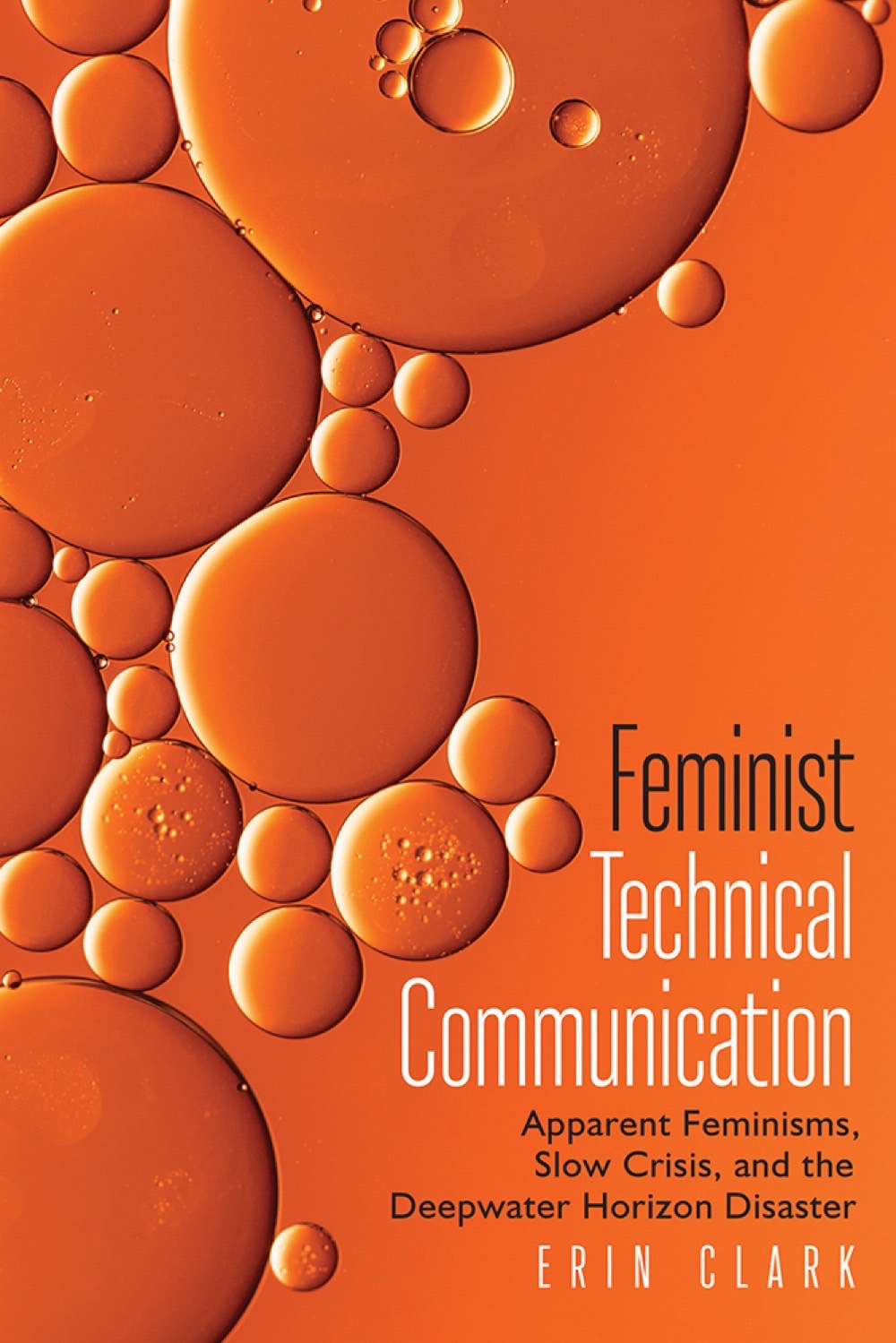Mentorship/Methodology
Reflections, Praxis, and Futures
Accessibility Tools
Apparent Feminisms, Slow Crisis, and the Deepwater Horizon Disaster

2025 CCCC Outstanding Book Award, Monograph
2025 CCCC Technical and Scientific Communication Award
"Thought provoking, educational, theoretical, and applicable for many readers. This book contributes to scholarly discussions centered on creating a more equitable and just world."
—Ja’La Wourman, James Madison University
“A novel contribution to feminist philosophy in technical communication, writing, and beyond.”
—Avery Edenfield, Utah State University
Feminist Technical Communication introduces readers to technical communication methodology demonstrating how rhetorical feminist approaches are vital to the future of technical communication. Using an intersectional and transcultural approach, Erin Clark fuses the well-documented surge of work in feminist technical communication throughout the 1990s with the larger social justice turn in the discipline.
The first book to situate feminisms and technical communication in relationship as the focal point, Feminist Technical Communication traces the thread of feminisms through technical communication’s connection to social justice studies. Clark theorizes “slow crisis,” a concept made readable to technical communicators by apparent feminisms that can help technical communicators readily recognize and address social justice problems. Clark then applies this framework to the Deepwater Horizon Disaster, an extended crisis that has been publicly framed by a traditional view of efficiency that privileges economic impact. Through rich description of apparent feminist information-gathering techniques and a layered analysis, this study offers application far beyond this single disaster, making available new crisis-response possibilities that consider the economy without eliding ecological and human health concerns.
Feminist Technical Communication offers a methodological approach to the systematic interrogation of power structures that operate on hidden misogynies. This book will be useful to technical communicators, scholars of technical communication and rhetoric, readers interested in gender studies and public health, and is an ideal text for graduate-level seminars focused on feminisms, social justice, and cultural studies.